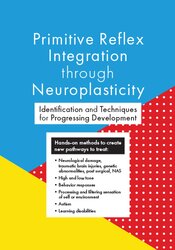

In this interactive recording, improve treatment for your clients by discovering the link between primitive reflexes and development. Learn to evaluate the influence of primitive reflexes with central nervous system developmental stages, as it relates to function.
Practice simple techniques to immediately add to your treatment sessions, leading to increased developmental success:
This online program is worth 6.0 hours CPD.
| File type | File name | Number of pages | |
|---|---|---|---|
| Manual - Primitive Reflex Integration through Neuroplasticity (12.3 MB) | 62 Pages | Available after Purchase | |
| Manual - Primitive Reflex Integration through Neuroplasticity (12.3 MB) | 62 Pages | Available after Purchase | |
| Instructions for ASHA credit - Self-Study Only (64.4 KB) | Available after Purchase |

Karen Pryor, PhD, PT, DPT, CH, CFPS, has a doctorate in physical therapy and has practiced for 40 years in the field. Dr. Pryor is the owner of Health Sphere Wellness Center, an integrative therapy clinic in Nashville, Tennessee. Involved with early intervention in the birth-three population for over 30 years, she has developed neuroplasticity techniques that are used in a wide variety of settings, including homes, childcare centers, and school systems, to advanced pediatric therapy programs. Dr. Pryor serves on several boards, including the Leadership Interagency Council for Early Intervention (2014-2019), a position to which she was appointed by Tennessee Governor Bill Haslam. In 2010, she received the President's Volunteer Service Award for her contributions to the advanced treatment of children from President Barack Obama. In addition to her work with children, Dr. Pryor has served as an adjunct professor at the Tennessee State University Occupational Therapy Assistant program. She is a clinical instructor for several universities and colleges. With her years of experience and passion for complete wellness, Dr. Pryor advances a more expansive view of how to integrate therapy throughout the lifespan by using neuroplasticity techniques.
Speaker Disclosures:
Financial: Karen Pryor is the owner of Health Sphere Wellness Center, LLC and is a field examiner for PDMS-3. She has employment relationships with Tennessee State University, the University of Tennessee at Chattanooga Physical Therapy School, the Daymar Physical Therapy Assistant School and the Volunteer State Community College. She is a paid consultant for Evergreen Certifications. Karen Pryor receives a speaking honorarium and recording royalties from PESI, Inc. She has no relevant financial relationships with ineligible organizations.
Non-financial: Karen Pryor is a reviewer with Tennessee Physical Therapy Association and American Physical Therapy Association. She is an Ambassador for National Down Syndrome Society.
PRIMITIVE REFLEX OVERVIEW
PRIMITIVE REFLEXES COVERED IN DETAIL
Hands-On Activities
Case Studies
| 5 |
|
| 4 |
|
| 3 |
|
| 2 |
|
| 1 |
|
Satisfaction Guarantee
Your satisfaction is our goal and our guarantee. Concerns should be addressed to info@pesi.co.uk or call 01235847393.
Please wait ...